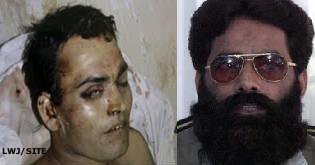The then- Director of the Intelligence Bureau of the (British) Government of India, Sir Norman Percival Arthur Smith, prepared an assessment in January 1947 on the situation in India. It was rather gloomy. Smith thought that India needed a strong center which would not be conceded by the Muslims; the weak center envisioned by the Cabinet Mission Plan "carries within itself the seeds of disruption. It is difficult to foresee a joint policy in foreign affairs, and consequently in defence and finance". Smith thought that the Indian leadership was too inept to overcome these inherent difficulties and therefore Pakistan was very likely; though Pakistan would not advantage the Indian Muslim. Smith thought that the Congress should establish a strong center in the areas of Hindu preponderance, and exclude the North West, but was doubtful of their ability to do even that much.
This note, we are told was sent to the Private Secretaries to Atlee, Alexander and Sir S. Cripps. Of course the Viceroy Wavell and others saw it as well. The purpose of recording this note however is for the excerpt below.
The Transfer of Power 1942-47, editors Mansergh and Moon,
Volume IX, #304, pages 542-544
This note, we are told was sent to the Private Secretaries to Atlee, Alexander and Sir S. Cripps. Of course the Viceroy Wavell and others saw it as well. The purpose of recording this note however is for the excerpt below.
The Transfer of Power 1942-47, editors Mansergh and Moon,
Volume IX, #304, pages 542-544
......
(h) If Congress were wise, they would either attempt to dissolve by a psychological approach the psychological mistrust which exists or they would establish a strong Centre for areas of Hindu preponderance and to the exclusion of the N-West. But I doubt if Congress is wise enough to do either of these things.
...
(l) The psychological approach which I would commend to Congress would have to be one of great generosity—an offer, if necessary, of one over parity. I suggested this to Sardar Patel and told him, moreover, that any attempt to force the Muslims would result, through the disintegration of the police and Army, in the loss of N.W. India. His reply was that, if I thought that generosity would placate the Muslim Oliver Twist, I did not understand either the Muslim mind or the situation. With which sentiment I am tempted to agree
N.P.A. Smith









